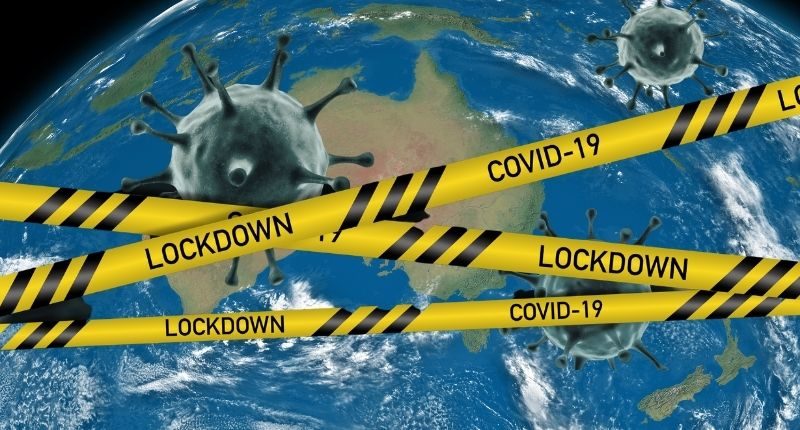- Continued lockdowns have dipped all major economic forecast indicators
- There is a possibility - not shared by everyone - that the economy could move back to recession
- Weight of opinion is that the economy will slow, but will repair itself by year end
- Whatever happens, the prospect of higher interest rates in 2021 - or even 2022 - has evaporated
With the RBA predicting a downturn in the Australian economy for the current September quarter, there is concern the December quarter could also show a decline, especially if lockdowns persist for a few more months.
More lockdowns in Sydney and Melbourne – which represent almost half the country’s GDP on their own – could result in a ‘double-dip’ recession.
Australia ran up almost thirty years of uninterrupted economic growth, from the recession of 1991 through to last year’s pandemic downturn. While the economy snapped back quickly towards the end of 2020 and into 2021, there are fears now we could plunge back into another six-month decline.
RBA Survey
This month’s Finder RBA Cash Rate Survey asked 40 property experts and economists, and 63% believed that lockdowns would result in another recession.
38% thought that only a couple more months of lockdown would tip Australian into a recession, while 43% said Australia’s response to the pandemic had hurt our international reputation.
Although parts of the country, and the world, have shown that the ‘least worst’ economic impact of an outbreak was a sharp, hard lockdown, the experts were concerned about the impact of a sustained period of disruption.
“The economic impact of these multi-state lockdowns will be material to GDP, which is expected to drop during the September quarter,” said Peter Boehm, CLSA Premium.
“The situation in Sydney is likely to worsen before it gets better and this will prolong the negative impacts on economic activity, both in NSW and Australia more broadly.”
The slowness of the vaccination rollout is another factor.
“Slow vaccine rollout and repeated lockdown response will delay the full economic recovery needed before interest rates will start rising,” said Jeffrey Sheen, of Macquarie University.
Sentiment in decline
With lockdowns more severe this month than previously, sentiment towards the economy has taken a hit, according to the survey.
Positive economic sentiment, last 12 months

Despite improvements in sentiment around jobs and wages in recent months, they both dived in August, as did housing affordability, household debt and the cost of living.
“Last month, we saw positivity towards wage growth spike to its highest point since our survey began,” said Graham Cooke, head of consumer research at Finder.
“While this has seen a sharp decrease, it’s employment that’s seen the biggest dip, dropping from 71% in July to 29% in August.
“Positive economic sentiment overall has dropped to 14% in August, down from 28% last month,” he said.
Interest rates not for rising
Overall, the continued Sydney lockdown – and newly announced Melbourne one – seem to have put off any likelihood of an interest rate rise, for a while at least.
“The current COVID outbreak has slowed our economy once again and whilst we may be able to avoid going back into a recession, it will be close,” said Dale Gillham, of Wealth Within.
“Given this, it is highly unlikely the RBA will move to increase interest rates in the next 6 to 12 months, whilst in the short term they may consider moving them lower, although I do not think they will.”
Most experts agreed, saying interest rates will stay at their historically low levels until 2023, perhaps 2024, as has been stated by the RBA on many occasions.
“The RBA has time to evaluate the impact of the Sydney lockdown and the potential ongoing lockdowns that may occur due to the spread of the Delta variant,” said Matthew Peter, of QIC.
“At its August meeting, the RBA [did] reiterate [its] rate guidance for a 2024 lift-off – and no sooner.”
Leanne Pilkington of Laing+Simmons, agreed.
“The risk of recession on account of the lockdowns, particularly in Sydney, necessitates a continuation of the RBA’s previously stated course as attention turns to the stimulus measures available,” she said.








